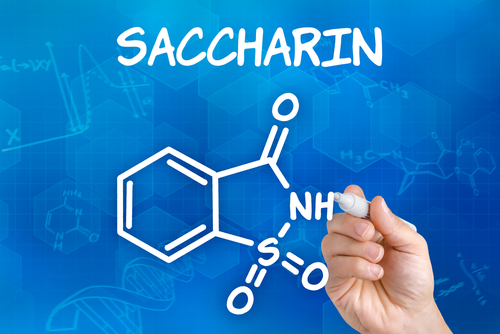Is Sweet'N Low Bad For You?
Also Known As: saccharin
Short answer
Saccharin, once feared to cause cancer, is no longer believed to be carcinogenic. It does disrupt gut bacteria in rodents, however.
A fairly even ratio of beneficial and harmful qualities. Moderation is important. Very general topics that can lean towards both sides of the spectrum will be placed here as well. Rice, for example, can be good or bad depending on the type.
View Full Grading System
Category 'A'
Very healthy and numerous health benefits. Side effects are rare. Things rated an 'A+' are typically necessary for survival (for example, water).
Very healthy and numerous health benefits. A few harmful qualities may be associated, but only under certain circumstances such as an allergic reaction.
Very healthy and numerous health benefits. Harmful qualities may be associated, but aren't usually serious.
It is important to note that even the best things in life can become bad in immoderate amounts. So, although something may be rated an 'A+', overconsumption/overdoing can bring unwanted effects.
Category 'B'
Very beneficial to your health. Things rated a 'B+' may have a few harmful qualities to pay attention to.
Overall beneficial to your health. Things rated a 'B' may have some harmful qualities to pay attention to.
More beneficial to your health than not. However, harmful qualities are most likely associated and shouldn't be overlooked.
The main difference between category 'A' and category 'B' is the harmful qualities typically present in 'B' items. Serious side effects are usually uncommon, but are still possible and should be taken note of.
Category 'C'
Both beneficial and harmful qualities associated. Things rated a 'C+' are typically a bit more on the beneficial side. Still, moderation is important.
A fairly even ratio of beneficial and harmful qualities. Moderation is important. Very general topics that can lean towards both sides of the spectrum will be placed here as well. Rice, for example, can be good or bad depending on the type.
More harmful than beneficial. Side effects are common, especially when consumed/done excessively. Moderation is very important.
Category 'C' usually denotes to both good and bad qualities. When it comes to this category, it is important to keep this word in mind: moderation.
Category 'D'
Harmful to your health. Although benefits may be associated, the bad most likely outweighs the good. Moderation is very important.
Harmful to your health. A few benefits may be associated, but the bad outweighs the good. Moderation is extremely important.
Harmful to your health. Very few, if any, benefits are present. Things in this category should be avoided as much as possible.
Category 'D' is typically for things that are more harmful than beneficial. While consuming/doing something unhealthy once in a blue moon shouldn't hurt, we definitely recommend eliminating 'D' items as a regular part of your routine/diet.
Category 'F'
Category 'F' is for things that fail to bring anything beneficial to the table, and are very harmful to your health. We recommend completely avoiding anything in this category. Long-term side effects of 'F' items are usually very serious.
Category 'N'
'N' stands for neutral. Things placed into this category are generally (a) neither good nor bad for you, or (b) lack the necessary evidence to reach any conclusions.
Long answer
Saccharin - commonly known as Sweet N' Low - is an artificial sweetener that's long drawn controversy. The Canadian government banned it in in 1977 over a possible link to bladder cancer in rats. The FDA tried to do the same and was met with a public outcry. They put a moratorium on the ban until further research could be done. That moratorium is still in place, with saccharin in limbo.
Recently, however, regulatory agencies have backpedaled on the link between saccharin and bladder cancer. The European Food Safety authority took a second look in 1995 and rolled back their ban. The cancer arm of the World Health Organization followed suit in 1999. Until 2000, saccharin had to carry a warning label in the United States; that requirement has since been lifted. The EPA delisted it as a hazardous constituent in 2010. Canada fell in line as well, reversing their saccharin ban in 2014.
Some new research has indicated that saccharin may actually inhibit the growth of cancer cells. That's according to the findings of researchers at the University of Florida last year. The data here is very new, and nothing is conclusive so far, but the findings further muddied saccharin's former reputation as a carcinogen.
Saccharin appears to cause other problems - in rodents, at least. One study demonstrated a link with obesity; others have shown higher blood glucose and insulin resistance. Another study in Nature found that saccharin disrupted gut bacteria in mice. That pushed up glucose levels, with risk for diabetes following in turn. The human sample in the Nature study was very small - seven people - but showed the same result. Keep an eye on further research to reinforce or complicate the link between saccharin, blood glucose, and diabetes.
Is it healthy for pregnant women? That's a more difficult question. Saccharin can cross the human placenta. There's also evidence that it fetal metabolisms are slow at reducing it. Numerous studies, however, have failed to demonstrate that it results in malformed babies or is in any way linked to miscarriages. So far, the science seems to suggest that saccharin is safe for pregnant women, however, we still recommend avoiding it as it is simply not worth the risk.
Possible short-term side effects
- crosses the placenta in pregnant women
Possible long-term side effects
- disrupt gut bacteria
-
insulin resistance
-
diabetes
-
obesity
Please turn your Ad Blocker off to see this content. Thank you!


 Approved by
Approved by 











.png)


